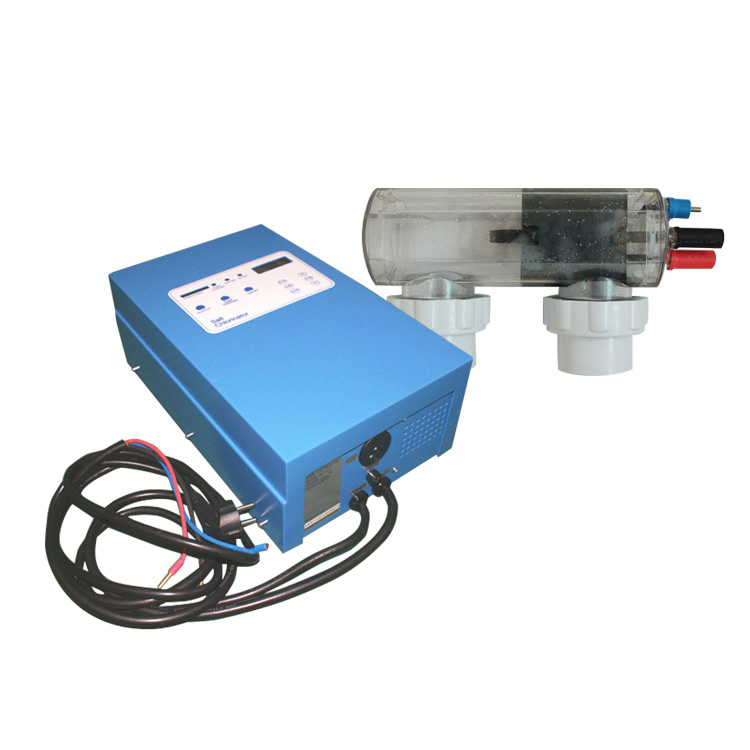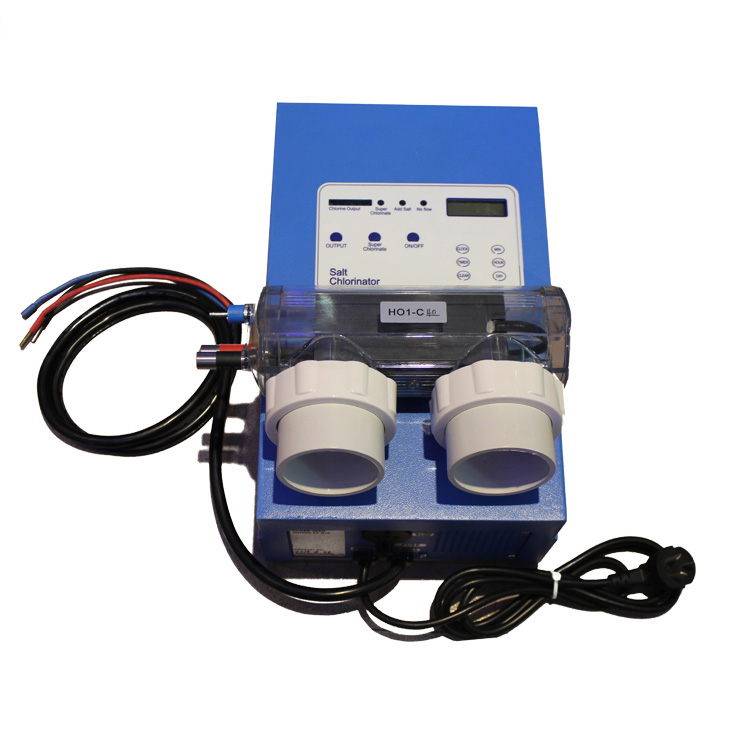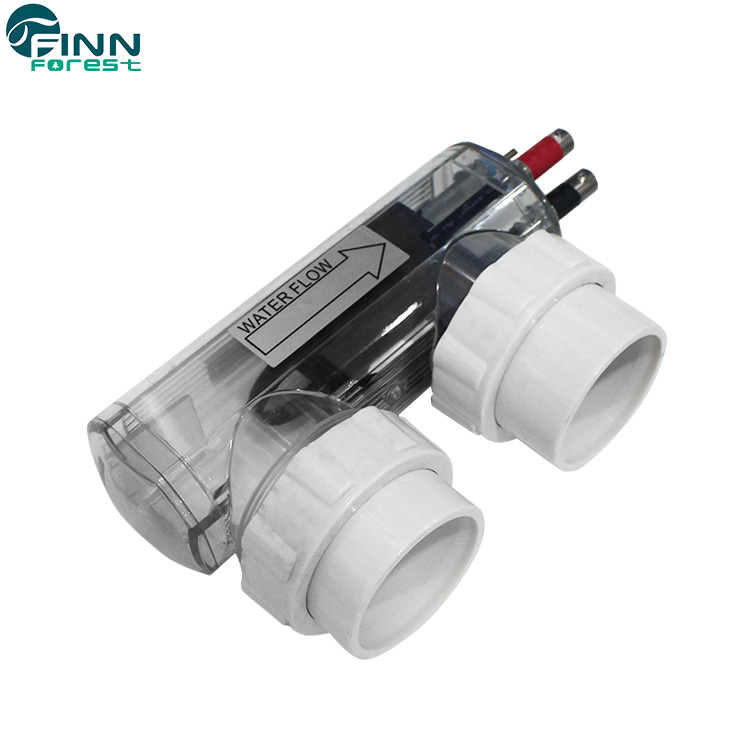
How do salt chlorinators work?
The most popular type of saltwater pool disinfection system, called an SWG (or “salt generator”), works by converting ordinary table salt in the surrounding air to pure chlorine using electrolysis technology. It is a popular choice because it can be used for both swimming pools and spas without the need to modify components like you would with other types of salt systems.

The Fenlin range of swimming pool chlorine generators (also known as salt pool chlorinators) create their own chlorine, meaning you don’t need to add chlorine to your pool manually .
Salt Chlorinators use an electrolytic cell to sanitise your swimming pool. By adding a small amount of salt (sodium chloride) to your pool water, the cell converts the chloride contained in the salt water into chlorine. This is an extremely efficient and cost-effective method of sanitising your pool.
Saltwater pools also help to eliminate red eyes, skin irritations and harsh chemical odours which can be caused by conventional chlorinated pools. Fenlin salt water pool chlorinators use clearwater technology to automatically create and dispense chlorine to your pool water. And the level of salt in the water is so low it is almost undetectable to taste. In fact, it's less than that found in a teardrop so it is gentle on the skin and beautiful to swim in. Alternatively you can use many of the mineral salt blends available on the market with a Fenlin chlorine generator to add that little bit of luxury to your pool water.


1) – Fewer chemicals
While chlorine is present in the pool, there is a reduced need for additional sanitising chemicals. Many other chemicals such as oxidisers are also minimised, saving you money and time. This means that caring for the pool is more environmentally-friendly. Plus there is no strong chlorine odour around the pool.
2) – Minimal maintenance
A chlorinator requires minimal maintenance and you can set it to control your filtration pump and run the system automatically. The chlorine production can be controlled to suit your pool size and the bather demand. However, you should still conduct regular water testing to ensure your chemical levels are in balance.
3) – Cost-effective
Chlorinators may cost more upfront but in the long run, they save much more in costs and time, thanks to the great reduction in chemicals and maintenance.
Note: The salt cell does have a limited lifespan (roughly 3-5 years depending on use), so the cell will require replacing, similarly to tyre changes or other periodic maintenance required for a car.
Always consult with a pool professional for the best product to suit your needs. If you would like any additional swimming pool equiment, please don’t hesitate to reach out to us via LIVE CHAT or email


















